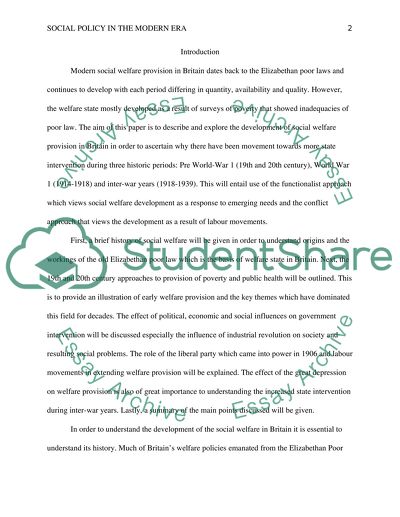Cite this document
(“Social Policy The modern era Essay Example | Topics and Well Written Essays - 2000 words”, n.d.)
Retrieved from https://studentshare.org/history/1472070-social-policy-the-modern-era
Retrieved from https://studentshare.org/history/1472070-social-policy-the-modern-era
(Social Policy The Modern Era Essay Example | Topics and Well Written Essays - 2000 Words)
https://studentshare.org/history/1472070-social-policy-the-modern-era.
https://studentshare.org/history/1472070-social-policy-the-modern-era.
“Social Policy The Modern Era Essay Example | Topics and Well Written Essays - 2000 Words”, n.d. https://studentshare.org/history/1472070-social-policy-the-modern-era.


